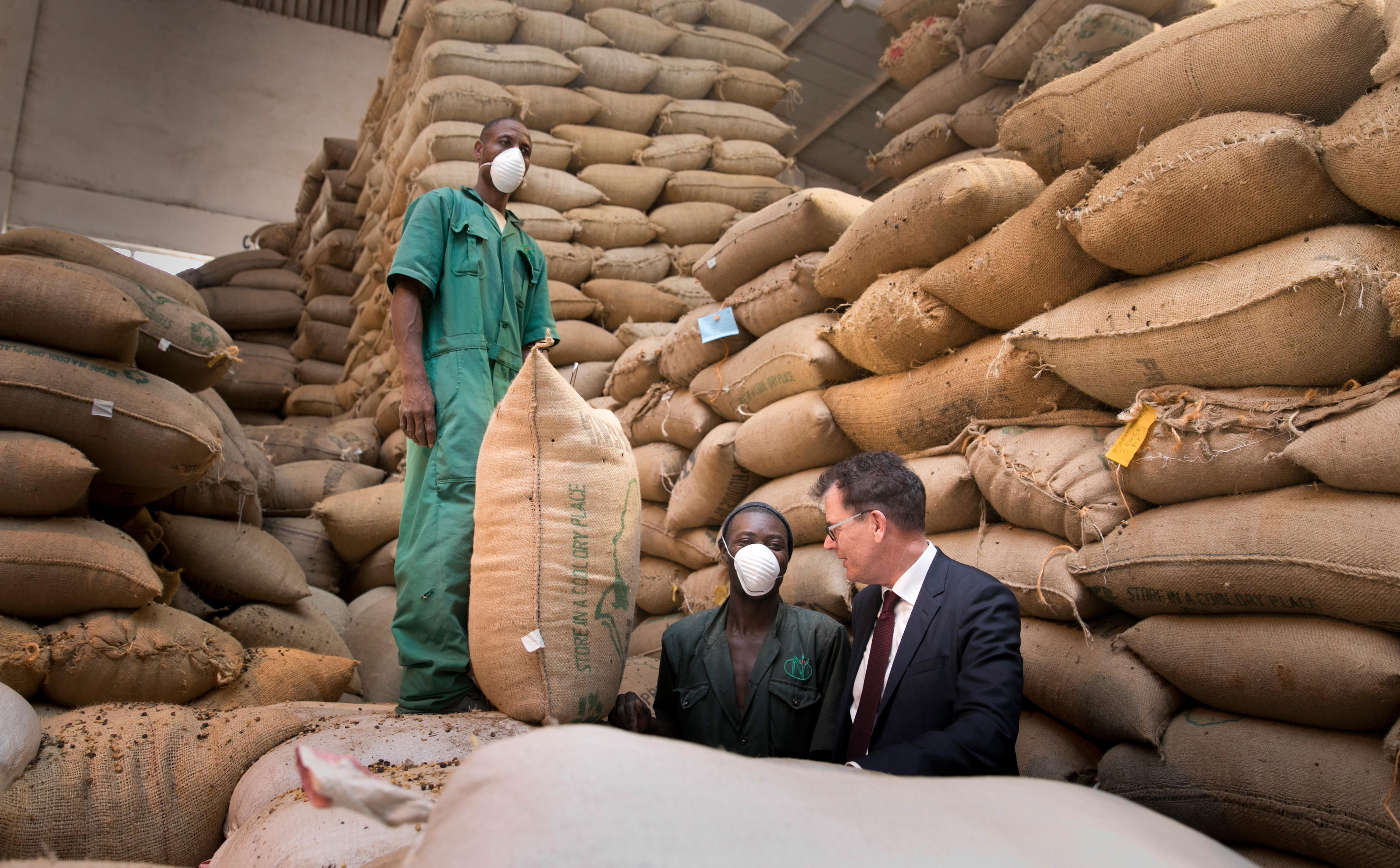International Coffee Day Minister Müller calls on new German government to grant tax exemption for fair coffee
German Development Minister Gerd Müller said: “Coffee is Germany’s most favourite beverage. Sadly, however, far too often coffee is still produced with child labour. Because farmers get far too little of the sales price.
Germany is the biggest exporter of processed coffee worldwide. The raw coffee is roasted in Germany and then sold in shops for 4 to 6 euros. Farmers, however, are paid a mere 25 cents for the coffee beans. I saw that for myself when I visited plantations in east Africa. These starvation wages are hardly enough to live on. That is why hundreds of thousands of children are forced to work on the plantations. When you drink a cup of coffee in the morning you should be aware that most farmers on the coffee plantations are living in poverty, suffering hunger.”
“Fair coffee can bring about change. But for years its share has been stagnating,” Müller continued. “As little as 6 per cent are traded fairly. And Germany is one of the few countries that raise a tax on coffee. This means that the price pressure felt by retailers is passed on to the farmers even more.
The coming government must finally take action and lift the coffee tax on fair coffee. When he was mayor of Hamburg Olaf Scholz himself called for that, but he didn’t implement it as the Finance Minister. For consumers, fair coffee would then cost more or less the same as regular coffee. This would be an effective measure to prevent child labour, because parents would finally be paid decent wages for their hard work on coffee plantations.”
“Until then, the public sector in Germany, from the federal level all the way to the local level, should act as a trailblazer: It should become a rule in every city hall, every municipal office, every cafeteria to buy and serve only fairly traded coffee,” Müller said.
Minister Gerd Müller talks to workers at Kenya's largest coffee roasting plant in Thika.
Facts & figures
- 25 million people are active in coffee farming. For 125 million people worldwide coffee is the economic base for their livelihood.
- Roughly 70 per cent of all coffee is grown on small family farms.
- Development of coffee prices: In 2019 and 2020, world coffee prices (Arabica) fell to a record low in the last 13 years. In 2020, prices were almost continuously 30 per cent below the average price levels of the previous ten years.
- Germany is the second largest importer of raw coffee and the largest exporter of roasted coffee.
- The coffee sector generates approximately 180 billion euros a year, with as little as 10 per cent remaining in producing countries.
- The value added is not distributed evenly throughout the coffee supply chain. Very little coffee is generally processed in producing regions, most of it is exported as raw coffee. A large part of value creation, such as processing, happens in consumer countries (mainly Europe and the US).
- Coffee tax is roughly 2.19 euros per kilogramme of coffee. Germany generates approximately one billion euros from coffee taxes.
- If coffee taxes were abolished, a 500g-packet of fair coffee which costs roughly seven euros at the moment could be sold for 1.10 euros less.
- Germany’s federal government, states and local authorities make procurements each year to the value of 500 billion euros. This offers powerful leverage.
